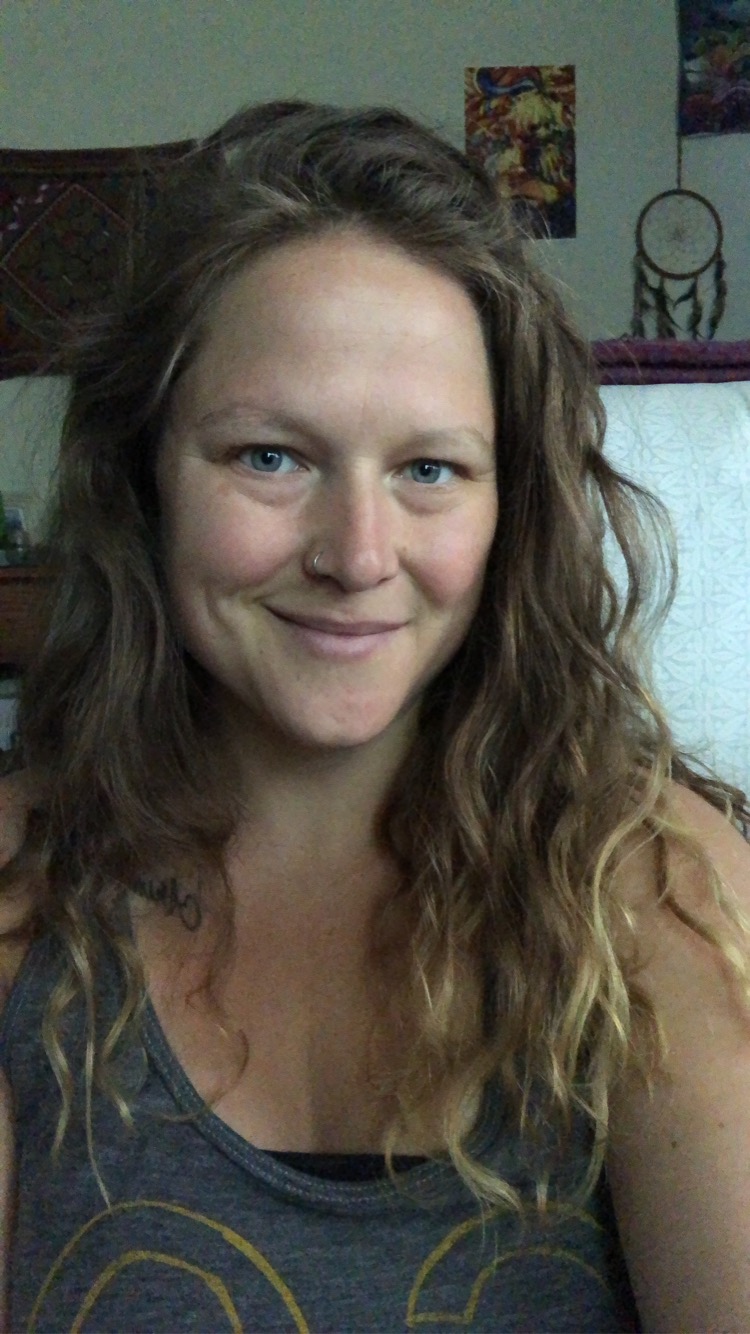
The following article is an excerpt from Anna Palmer’s book, Coming Home: Healing From an Eating Disorder by Finding Beauty in Imperfection. May the words here grant you deeper permission to come home to the fullness of yourself, humanness, divinity, and all. Welcome home.
~
Chapter 5. The Black Hole of Self-Loathing: Depression, Shame, Perfection, Worth, and Self-Esteem
I had no idea who the hell I was for most of my life. I also didn’t particularly like myself for a lot of my life, lost as I was to an Eating Disorder (ED) and bouts of heavy depression. The black hole of self-loathing is one I became all too familiar with.
After grade school, you begin to feel the external pressure to be—or not be—a certain way. Without the proper guidance of how to navigate the new emotions and unspoken social rules, it’s easy to become mired in our own sh*t along the way.
In middle school, I began struggling to find my sense of worth and value. There were so many mixed messages coming at me from all directions: from parents, friends, the church, and my newly expanded world of public school. I didn’t feel I could trust in who I was as a person, and instead began to believe opinions outside of myself to tell me who and what I needed to be.
Having been ridiculed by teachers or peers for being “too quiet,” “too small,” or “too shy,” the word “too” became my identity, accompanied by a deep sense of shame that I carried with me at all times. I was always “too” of something, so naturally “too” became the adjective I used to describe myself, my emotions, and my body.
I was too insecure. Too introverted. Too flat chested. Too short. Too box-shaped. I was too small. Too muscular. I was too nice. Too soft-spoken. Too afraid. Over time, the “too” evolved into too fat, too much, too much. I took up too much space. I was too emotional, too sensitive, too big, too, too, too.
With a fragmented sense of self, outside opinions can easily become our inner dialogue. The inner dialogue is the deadliest, most insidious weapon we can wield against ourselves.
Whose voice, but your own, do we hear every day? We are all taught, in numerous insidious, unconscious ways, to be mean to ourselves. We learn to “stay humble” by being self-critical and self-demeaning, which eventually grinds our value and self-worth down to a pulp.
It’s a f*cked-up game. Our inner dialogue becomes a nasty, mean-spirited inner critic that we hear day in and day out. It spews an endless fountain of negative thoughts, which are based on belief patterns stemming from previous painful experiences such as humiliation and rejection. The negative inner critic is extremely difficult to uproot.
As women, especially, we are told from the moment of conception to not be too much. We are told, verbally and non-verbally, to not take up too much space in the room. Don’t be too loud or outspoken. But, don’t be too small and meek either. Don’t be this way. Be this way, but only in these ways. But, please don’t be that right now.
It’s all very f*cking confusing isn’t it? You lose weight, and you’re applauded. You lose too much weight, and now you’re sickly. You gain weight and you’re ridiculed. You gain weight in all the right curvy and sexually appealing places, and then you have sex appeal. However, now you’re a threat to other women based on our competitive cultural upbringing, and are then judged and ridiculed for other flaws, and also perceived as a slut.
You are told that what you say matters, so you speak up. You say something against the grain and get slapped with the label of “crazy” or “too emotional.” You’re told to find a man, but don’t you dare give up your independence. Have a full-time career, and also you must be a mother on top of this. Basically, please be superman. No wait, superwoman. And be sexy, but not too sexy. You can wear that, but please, girl, do not wear that!
We live in a constant state of mixed messages waxing and waning between approval and disapproval of ourself, our body, our actions, how we dress, everything. The constant push-pull becomes a hyper-vigilant prison that we live in. As a woman, you can’t ever seem to get it “right.” You are exhausted and nowhere near being “happy.” No wonder many of us end up miserable, self-loathing, and depressed.
It’s hard to say what comes first in the development of an ED. Is it the ED and then the depression? Or is it the depression and then the ED? The self-hatred would make anyone depressed, though. Depression and the ED were deeply intertwined, both fueled by self-hatred.
With a disposition to mood fluctuations, trauma can be yet another thing that pushes you into developing an ED. It shapes the individual’s self-worth and their self-image. It affects your sense of self and self-esteem. You begin to question all that you previously knew to be true of yourself.
Traumatic experiences can easily become your story and identity. They can formulate your experiences and mold your perception and thinking, and contribute to the belief that you somehow deserved the pain you underwent. Trauma keeps you imprisoned in shame and unworthiness.
Pain and trauma have a way of convincing you that you deserve pain, and then shame covers the lens of your existence. You start to mold your thoughts, beliefs, and behaviors around this basic premise: “I am worthy and deserving of pain.”
Anorexia and restriction became a way to withhold nourishment from myself, as I didn’t feel worthy of being alive. An ED becomes a trauma cycle in and of itself. The forced starvation, the self-induced purging, and rigorous exercise become deeply traumatic to the psyche and self.
Trauma causes us to literally flee our bodies when we don’t eat or when we inflict harm or negligence upon them. We stop inhabiting our bodies. We stop listening to their pleas for food. The traumatized brain hijacks the wise mind, and we begin to cycle through re-traumatizing the self who already underwent the original trauma. We deem ourselves worthy of one thing: pain and punishment, which are deeply rooted in feeling ashamed of the experience we underwent.
As a result of my own unique shades of trauma and growing sense of unworthiness, I developed a hard, self-critical, self-perfecting lens to see myself through and protect myself from future pain and humiliation. I believed controlling my weight and my body was a way to feel more in control of the myriad of changing variables outside of me.
I felt if I was a certain body type, size, or maintained these “perfect” standards, I couldn’t be hurt by pain or rejection ever again. Or, at the very least, I hoped my ED was pain that I, and I alone could inflict and control. And, I believed that I was deserving of this pain.
It’s a protective shield we use to keep life at bay. But we aren’t just keeping out the pain, but the joy, connection, and love too. Life is a whole gamut, a beautiful array, of emotions. It is both darkness and light. We can’t get “rid” of one, without subduing the other.
If we want to experience being loved, we have to be available to experiencing both pain and love. I tried to fight and resist this for over a decade. I tried to control how I experienced pain, and also how I experienced joy. Whether they were self-fabricated or not didn’t matter, as long as I was the one in control. The irony is you never are though; we only ever experience a false sense of control.
~
Read part one of this series: Coming Home: On Healing from an Eating Disorder.
Read part two of this series: How Eating Disorders are a way of Coping with Emotions & the Effects of Traumatic Events.
Read part three of this series: Hello Bulimia, My Secret Friend: When Food Becomes Survival & the Body the Enemy.
Read part four of this series: The Real Toxin: The Harm of our Fat-Phobic Culture.
~












Read 0 comments and reply